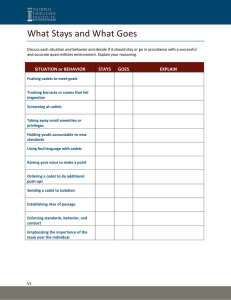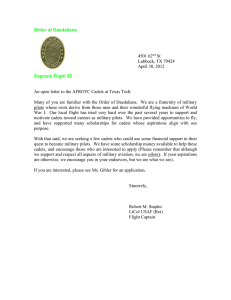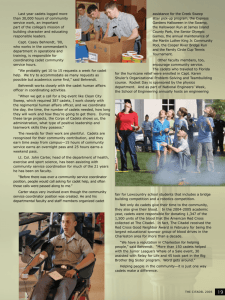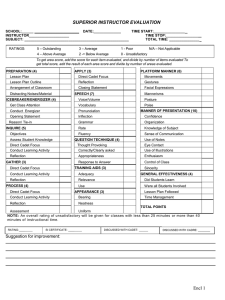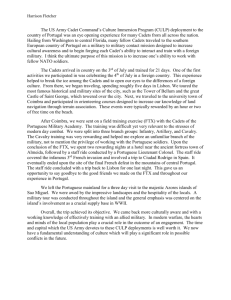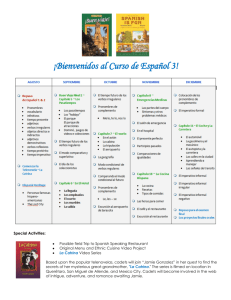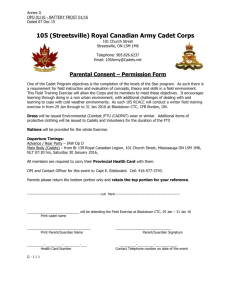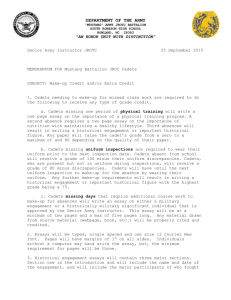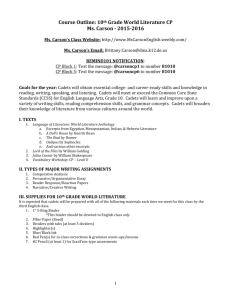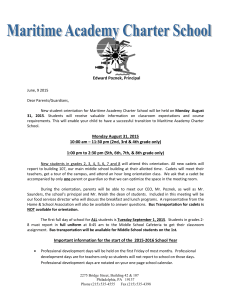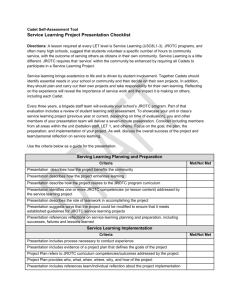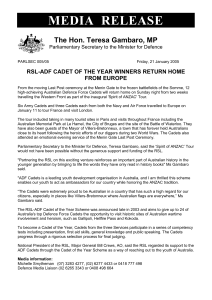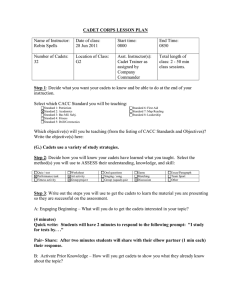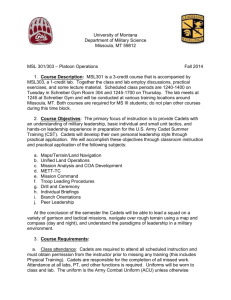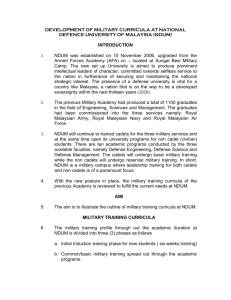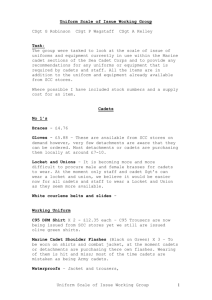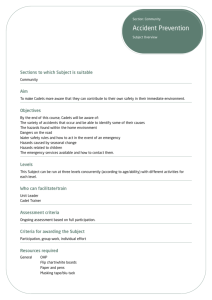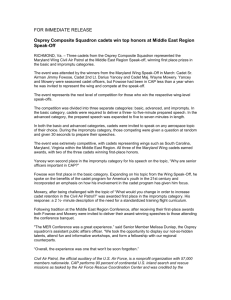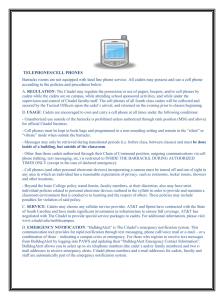Components and Phases of the Lesson Plan Outline
advertisement
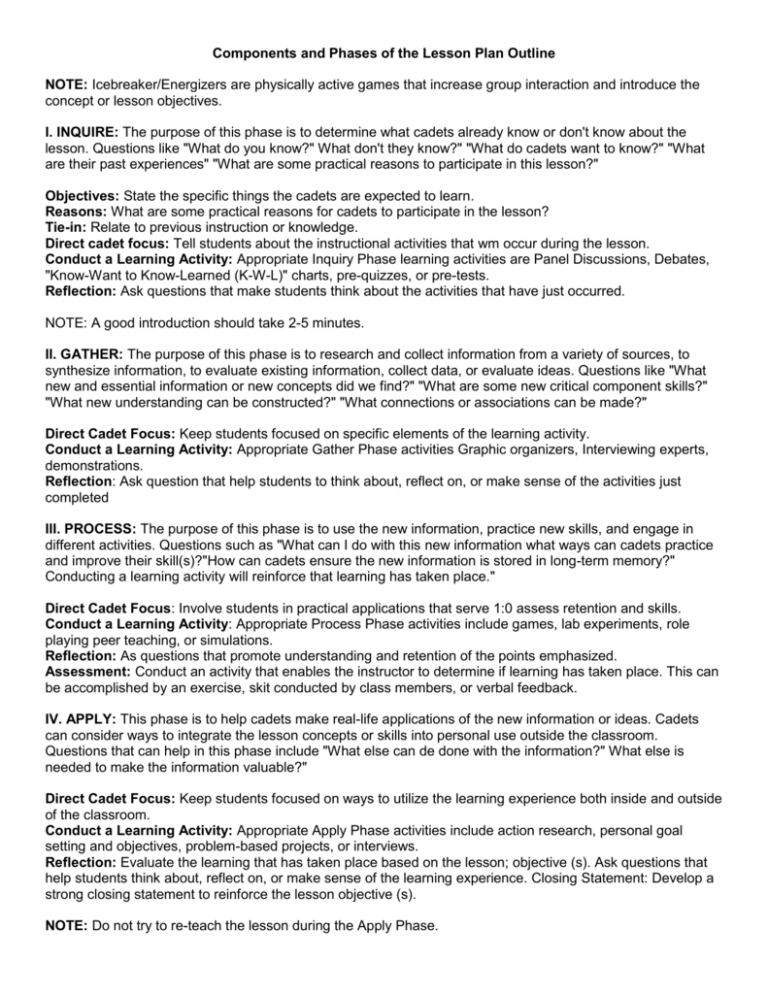
Components and Phases of the Lesson Plan Outline NOTE: Icebreaker/Energizers are physically active games that increase group interaction and introduce the concept or lesson objectives. I. INQUIRE: The purpose of this phase is to determine what cadets already know or don't know about the lesson. Questions like "What do you know?" What don't they know?" "What do cadets want to know?" "What are their past experiences" "What are some practical reasons to participate in this lesson?" Objectives: State the specific things the cadets are expected to learn. Reasons: What are some practical reasons for cadets to participate in the lesson? Tie-in: Relate to previous instruction or knowledge. Direct cadet focus: Tell students about the instructional activities that wm occur during the lesson. Conduct a Learning Activity: Appropriate Inquiry Phase learning activities are Panel Discussions, Debates, "Know-Want to Know-Learned (K-W-L)" charts, pre-quizzes, or pre-tests. Reflection: Ask questions that make students think about the activities that have just occurred. NOTE: A good introduction should take 2-5 minutes. II. GATHER: The purpose of this phase is to research and collect information from a variety of sources, to synthesize information, to evaluate existing information, collect data, or evaluate ideas. Questions like "What new and essential information or new concepts did we find?" "What are some new critical component skills?" "What new understanding can be constructed?" "What connections or associations can be made?" Direct Cadet Focus: Keep students focused on specific elements of the learning activity. Conduct a Learning Activity: Appropriate Gather Phase activities Graphic organizers, Interviewing experts, demonstrations. Reflection: Ask question that help students to think about, reflect on, or make sense of the activities just completed III. PROCESS: The purpose of this phase is to use the new information, practice new skills, and engage in different activities. Questions such as "What can I do with this new information what ways can cadets practice and improve their skill(s)?"How can cadets ensure the new information is stored in long-term memory?" Conducting a learning activity will reinforce that learning has taken place." Direct Cadet Focus: Involve students in practical applications that serve 1:0 assess retention and skills. Conduct a Learning Activity: Appropriate Process Phase activities include games, lab experiments, role playing peer teaching, or simulations. Reflection: As questions that promote understanding and retention of the points emphasized. Assessment: Conduct an activity that enables the instructor to determine if learning has taken place. This can be accomplished by an exercise, skit conducted by class members, or verbal feedback. IV. APPLY: This phase is to help cadets make real-life applications of the new information or ideas. Cadets can consider ways to integrate the lesson concepts or skills into personal use outside the classroom. Questions that can help in this phase include "What else can de done with the information?" What else is needed to make the information valuable?" Direct Cadet Focus: Keep students focused on ways to utilize the learning experience both inside and outside of the classroom. Conduct a Learning Activity: Appropriate Apply Phase activities include action research, personal goal setting and objectives, problem-based projects, or interviews. Reflection: Evaluate the learning that has taken place based on the lesson; objective (s). Ask questions that help students think about, reflect on, or make sense of the learning experience. Closing Statement: Develop a strong closing statement to reinforce the lesson objective (s). NOTE: Do not try to re-teach the lesson during the Apply Phase.
